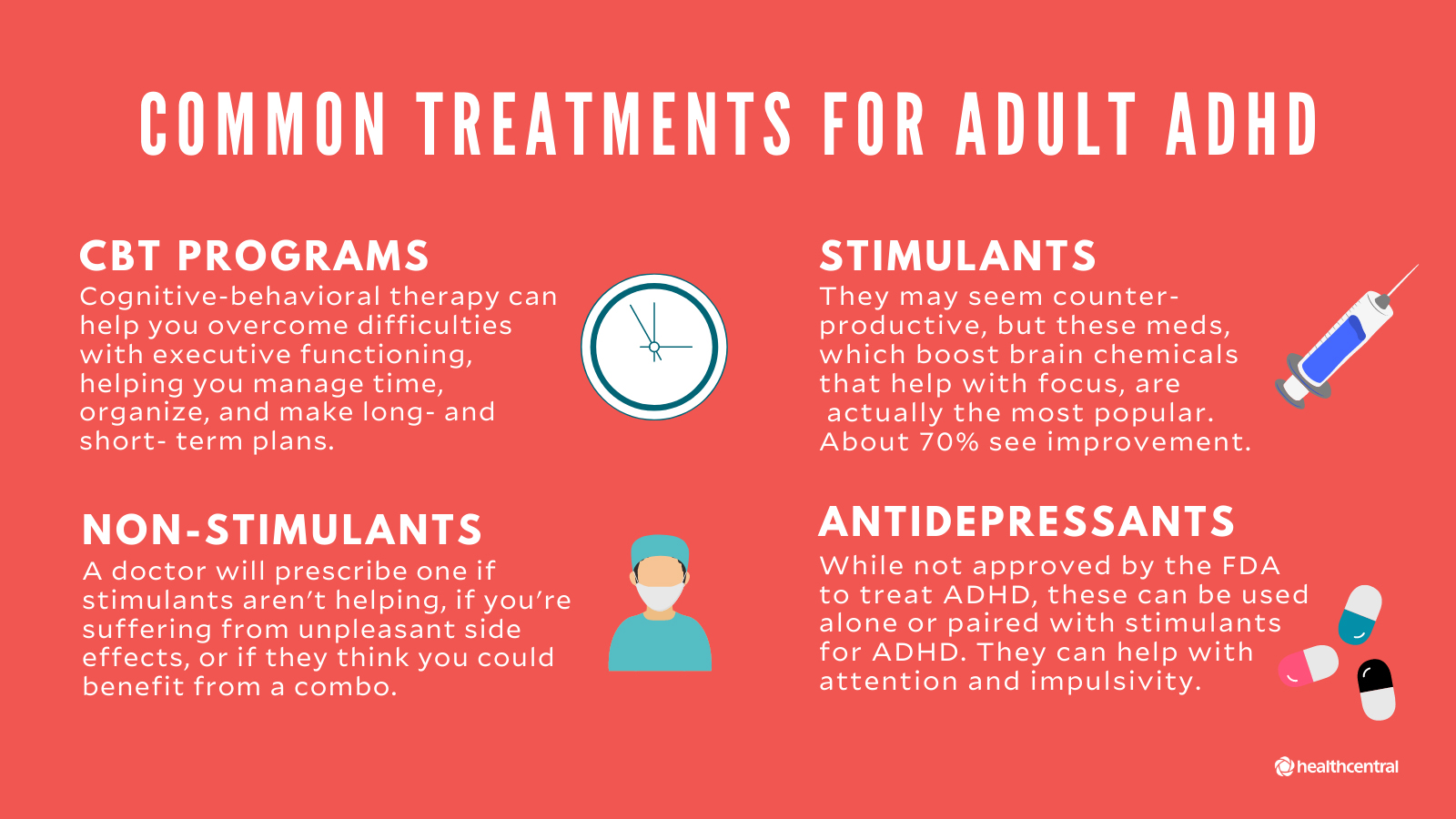Telehealth Psychiatrist Consultations for Accessible Care
Telehealth Psychiatrist Consultations for Accessible Care
Blog Article
The Advantages of Tailored ADHD Treatment Prepare For Better Results
The execution of personalized ADHD treatment strategies has actually emerged as an essential method in boosting therapeutic results for individuals impacted by this problem. By identifying the unique manifestations of ADHD in each person, these personalized treatments advertise greater interaction and motivation, eventually causing extra reliable coping strategies. This tailored approach not only addresses academic and occupational difficulties however likewise promotes enhanced social connections and general high quality of life. However, the true extent of these benefits elevates vital inquiries concerning the details parts that add to lasting success and just how they can be maximized for varied populations.
Understanding ADHD Irregularity
Although Attention-Deficit/Hyperactivity Condition (ADHD) is commonly perceived as a singular problem, its symptoms can differ substantially among people. This variability is affected by a variety of variables, consisting of age, gender, coexisting conditions, and ecological contexts. Children with ADHD may display hyper behaviors, while adults may mainly struggle with interest deficiencies. Gender differences additionally contribute, as men are much more regularly diagnosed with ADHD and usually show extra overt symptoms, whereas women might present with much less noticeable inattentiveness.
In addition, people with ADHD may experience a spectrum of psychological and behavior difficulties, such as anxiety or opposite defiance, that can make complex diagnosis and therapy. It is additionally worth noting that ADHD can present in different ways across different social contexts, influencing how signs and symptoms are acknowledged and dealt with.
Trick Parts of Customization
Customized ADHD treatment strategies are grounded in numerous crucial components that make certain efficient management of the condition. First, a comprehensive analysis is vital, including standardized rating ranges, meetings, and behavioral monitorings. This thorough assessment allows clinicians to recognize the individual's one-of-a-kind symptoms, strengths, and challenges.
2nd, the participation of several stakeholders, consisting of parents, educators, and the individual, adds to a holistic view of the person's requirements. Cooperation promotes a helpful environment that can adjust to the person's context and lifestyle.
Third, treatment strategies should be flexible and versatile, enabling for alterations based upon continuous feedback and the person's evolving demands. This versatility enables the assimilation of numerous restorative techniques, such as behavioral interventions, psychoeducation, and medication management.
In addition, cultural and contextual elements must be taken into consideration. Identifying the person's background, worths, and choices makes sure that the treatment is relevant and respectful.
Lastly, regular follow-ups and assessments are important to keep an eye on progress and make necessary changes. By concentrating on these key elements, personalized ADHD treatment plans can considerably improve the effectiveness of interventions, bring about boosted end results for people with ADHD.
Enhanced Involvement and Inspiration
To properly promote improved engagement and motivation in individuals with ADHD, it is necessary to incorporate approaches that resonate with their passions and staminas. Individualized therapy plans that line up with a person's interests can cause increased involvement in healing activities, promoting a feeling of ownership and enthusiasm for the process.
Using interactive and creative methods can also substantially improve motivation. For instance, incorporating gamification components or real-world applications of skills can make tasks much more attractive and pertinent. This not just catches interest however also strengthens learning with pleasurable experiences.
Additionally, setting possible and meaningful goals tailored to the person can boost inspiration. When people see their progress in the direction of directly substantial goals, they are most likely to remain involved. Normal comments and recognition of accomplishments can even more endure inspiration, developing a positive feedback loophole that motivates ongoing initiative.
Finally, fostering an encouraging atmosphere where individuals feel understood and valued can considerably influence their interaction degrees. When therapy plans are established collaboratively, integrating input from the person, they are more probable to feel spent in their trip, eventually causing boosted outcomes in managing ADHD.
Improved Coping Methods
Establishing boosted coping methods is essential for people with ADHD, as it furnishes them with effective tools to navigate daily obstacles. An individualized therapy plan enables for the identification of certain coping devices tailored to the person's special demands and conditions - ADHD treatment. Strategies such as mindfulness, time management skills, helpful hints and organizational strategies can be integrated into daily routines, promoting a sense of control he said and decreasing stress and anxiety
Mindfulness methods, including reflection and deep-breathing workouts, assistance individuals with ADHD focus their focus and manage their emotions. Time management strategies, such as using timers or damaging tasks into smaller sized, convenient steps, can mitigate feelings of overwhelm. Additionally, business tools like planners and lists can improve efficiency and accountability.
Lasting Positive Outcomes
Applying personalized ADHD therapy plans can result in significant long-lasting favorable outcomes for people. These tailored approaches, which take into consideration one-of-a-kind signs, preferences, and life scenarios, promote more effective administration of ADHD signs and symptoms in time. By concentrating on the specific requirements of the person, these plans boost adherence to treatment protocols and foster better involvement in healing tasks.

Additionally, tailored treatment strategies can considerably lower the danger of comorbid problems, such as stress and anxiety and depression, which are frequently associated with ADHD. Early intervention and consistent assistance help individuals construct durability and coping methods, promoting overall psychological health and wellness.
Inevitably, the long-lasting favorable results of customized ADHD therapy plans not only boost the quality of life for individuals yet also add to their general health and success in various life domain names. This alternative technique emphasizes the importance view it now of individualized treatment in managing ADHD successfully.
Conclusion

Report this page